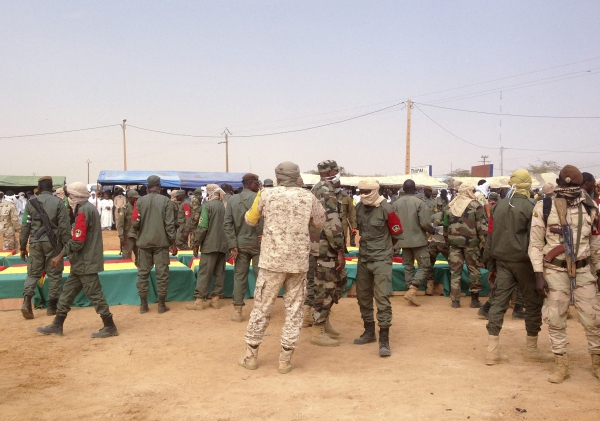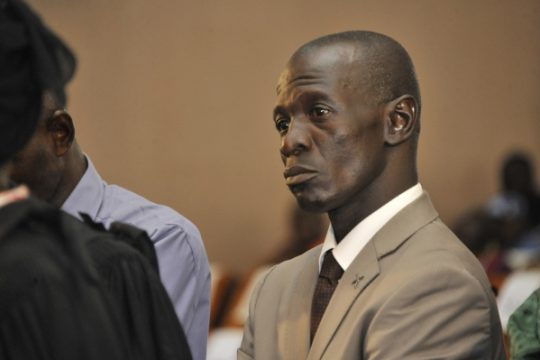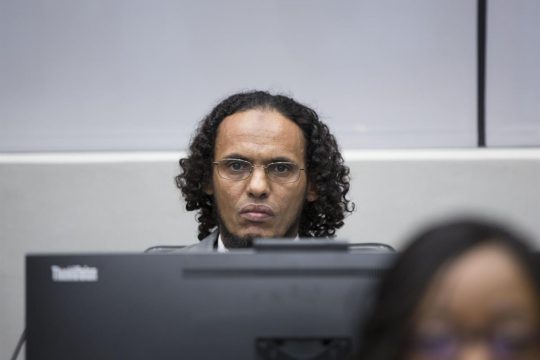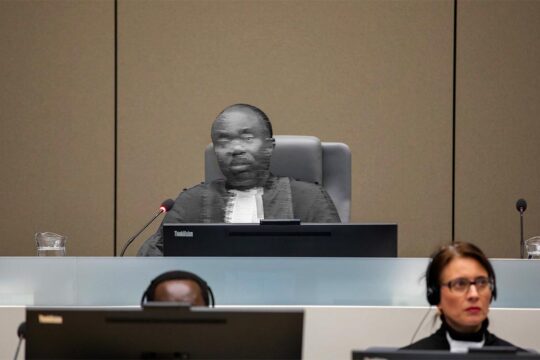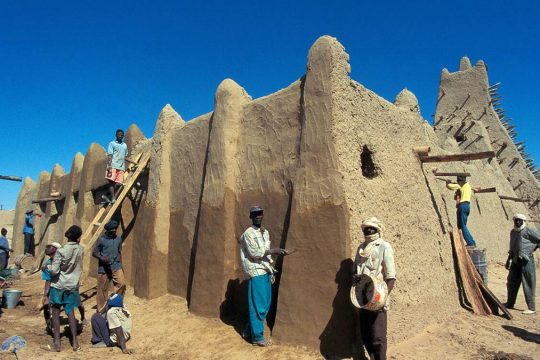The target of January 18’s terrorist attack in Gao, northern Mali, was highly symbolic: a camp housing members of the Malian armed forces and various armed groups who used to fight each other. The attack left dozens dead in this pilot camp where former enemies were learning to live and work together to implement the Algiers peace accord. It is a tough blow for Mali’s already fragile peace process. According to the UN, application of the agreement signed 18 months ago is complicated by the lack of trust that persists between the parties.
Some 60 people were killed in the attack, according to Bamako, and 77 according to the French army. The toll is heavy, but that is not all. Islamist group Al Mourabitoune, which claimed the January 18 suicide attack, hit at an arrangement that had been laboriously set up to try and implement the peace accord signed in May-June 2015 between the Malian government and several armed groups. The vehicle used in the attack exploded at the camp of the Operational Coordination Mechanism (MOC), housing members of the Malian defence and security forces and armed groups from the “Platform” and the Coordination of Azawad Movements (CMA) assigned to carry out joint patrols as part of Mali’s peace and reconciliation accord. The Jihadists’ message was clear: even if they no longer hold parts of the north, from which they were driven by the French army, they still have the capacity to cause harm and could threaten implementation of the peace accord.
Some leaders within the Platform, which is close to the government, accuse certain unnamed signatories to the accord of bad faith and of lacking real commitment to apply the agreement. But the Platform says it is the Malian State that has the first responsibility to protect its citizens. “I think the international community should support Mali,” Firhoun Maiga, one of the Platform leaders, said in a Studio Tamani programme. “But it is the responsibility of the Malian State to protect people and their property. It’s the responsibility of the Malian State to create the necessary conditions for people and property to be safe.”
“Why the hurry?”
The CMA thinks the attack shows conditions are not yet right to launch the Operational Coordination Mechanism. “You should not put hundreds of men in a camp without taking serious precautions,” said the CMA’s Ag Mohamed in the same programme. “Why the hurry to put these people in a barracks, with all the problems that creates? If there are not the means to ensure their security, then it would be better to leave them in an environment where each team can ensure its own security until the conditions are right to make the MOC operational.”
Under the peace accord, the MOC is in charge of planning and carrying out mixed patrols by members of the Malian Armed Forces (FAMA), the CMA and the “Platform”, with support from international forces, to ensure security in northern Mali.
The January 18 attack was condemned not only in Bamako but also Paris, Washington and New York. French President François Hollande, who had just returned from a summit in Mali, expressed outrage at the attack and reaffirmed his country’s support for Mali’s peace process. The United States also condemned an operation it said was designed to derail application of the peace accord.
“Little significant progress”
In New York, UN Secretary General Antonio Guterres declared that “this despicable act reinforces the United Nations' determination to support the people of Mali, the Government and the signatory armed groups in their quest for peace, their fight against terrorism and their efforts to uphold the peace agreement”. The new UN boss said he “urges the parties to continue to work to fully implement the provisions of the peace agreement and to do all they can to prevent such attacks”. UN Under-Secretary-General for Peacekeeping Operations Hervé Ladsous also issued a strong condemnation, saying the attack was “clearly aimed at derailing the peace process by undermining trust between the signatory parties and the people”.
Ladsous said that more than 18 months after the signing of the peace accord, “very little significant progress has been made,” despite some positive steps. “The implementation of the interim institutional and security arrangements has stagnated and remains undermined by persistent disagreements and lack of trust between the signatory parties,” he told a briefing. “Fragmentation of armed groups, especially within the Coordination of Azawad Movements, and the repeated attempts by dissident groups to undermine the peace process, also hampered the implementation.” He said the lack of tangible results is of major concern “and leads me to wonder about the real will and commitment of the signatories of the peace process”.
In an interview with UN News, the UN Secretary General’s Special Representative for Mali Mahamat Saleh Annadif also expressed concern about lack of trust between the peace signatories.
After this attack, what is left of that trust, which was already fragile?
Despite the calls for unity that followed the attack, leaders of the Platform announced at the weekend that they had lost 14 fighters in an attack attributed to the CMA. According to the Imghad Touareg and Allied Self-Defence Group (Gatia), which is part of the Platform, one of its posts near Tin-Assako, in the Kidal region, was attacked on Saturday January 21. The CMA has denied it was responsible.




